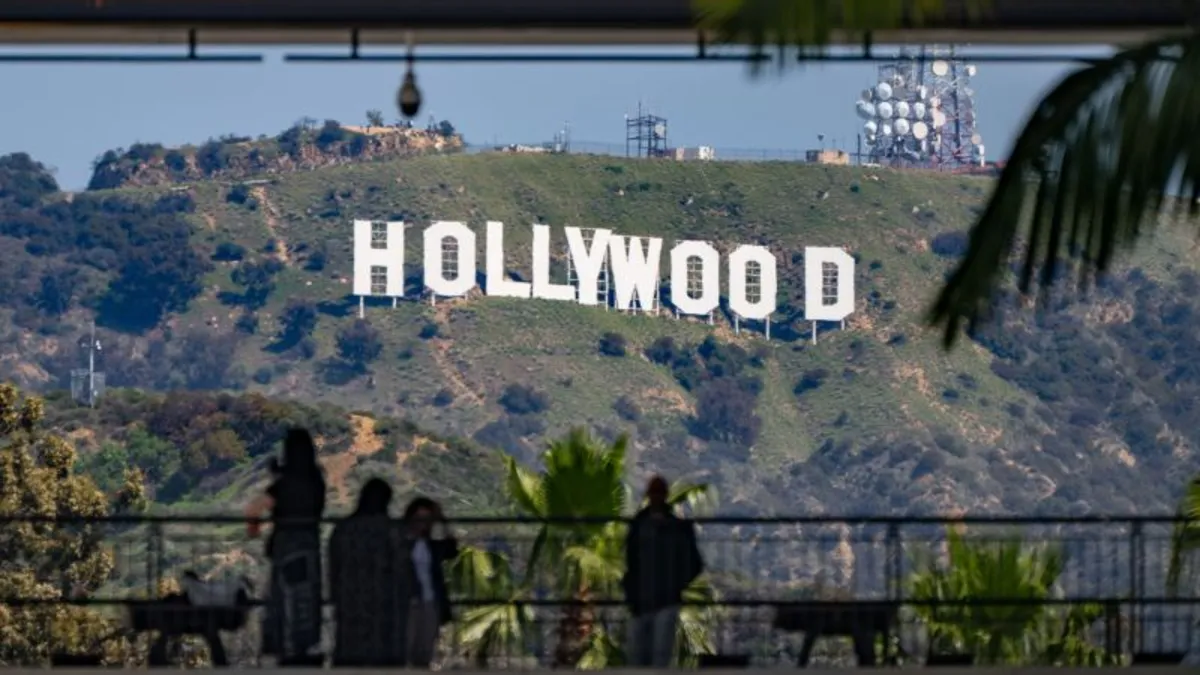
Filmmakers and Hollywood financiers are expressing confusion and concern over President Trump’s recent announcement advocating for a 100% tariff on movies produced outside the United States. The implications of this proposal are causing significant alarm within the entertainment industry, as many worry it could threaten the viability of a crucial sector of the economy. Several movie studio and streaming executives who spoke with CNN expressed their disbelief, suggesting that the President may not fully grasp the far-reaching consequences of such a measure.
“At first glance, this is shocking and would represent a near-total halt in production,” remarked one industry insider. “However, in reality, he lacks the authority to implement this, and enforcing it would be extraordinarily complex.” While some industry figures are taking a more constructive perspective, viewing Trump’s remarks as a catalyst for discussion on the issue of runaway production—which has left many American workers in the film and television sectors unemployed—the prospect of such tariffs adds another layer of uncertainty to an already unstable landscape.
Following Trump’s comments, shares of major entertainment companies, including Netflix, saw a decline as investors grappled with the ramifications of his statement. “The current structure of the proposed tariff simply doesn’t make sense,” stated Jay Sures, vice chairman of United Talent Agency. He acknowledged that while American actors and directors prefer to work domestically, “it is often significantly cheaper for Hollywood studios to produce films abroad due to lower labor costs and incentives.” Sures further explained that a blanket tariff could potentially bring the film industry to a standstill, a devastating blow following the recent dual strikes and ongoing content recession.
Despite the gravity of the situation, many sources within the industry are skeptical about the feasibility of Trump’s tariff plan. Movies are classified as a form of services rather than goods, which typically are not subject to tariffs. This raises questions about how such an initiative would be executed. Moreover, Trump’s assertion that foreign film production poses a “national security threat” may not hold up under legal scrutiny. Nevertheless, leaders in the entertainment sector are treating the potential for tariffs seriously, with multiple executives reaching out to Commerce Secretary Howard Lutnick regarding the proposal.
Lutnick responded on social media, stating, “We’re on it,” indicating that the administration is actively considering Trump’s directive. During a meeting in the Oval Office, Trump mentioned plans to consult with Hollywood executives before making a final decision, emphasizing the importance of keeping the industry satisfied.
The sentiment that Hollywood requires support transcends party lines. When Trump assumed office, he appointed notable figures such as Jon Voight, Mel Gibson, and Sylvester Stallone as his representatives to the film industry. Over the weekend, Trump met with Jon Voight at Mar-a-Lago to discuss strategies for revitalizing the American film industry. Voight has been working on a proposal that includes tax incentives but does not specifically address the idea of tariffs.
On Monday, White House spokesperson Kush Desai stated, “While no final decisions on foreign film tariffs have been made, the Administration is exploring all options to uphold President Trump’s directive to protect our national and economic security while aiming to Make Hollywood Great Again.” This mention of exploring “all options” may ease concerns among Hollywood lobbyists who have been advocating for incentives rather than punitive measures like tariffs.
The landscape of movie and television production, once dominated by Hollywood, has shifted significantly to other U.S. states and international locations due to favorable tax incentives and financial considerations. As noted by entertainment trade magazine Variety, a wide array of films, from low-budget indies to blockbuster hits, are now being produced in countries such as the U.K., France, Germany, and Hungary, prompting shock and disbelief within the European film industry.
Trump framed the issue simply when he spoke to reporters at the White House, claiming that “other nations have been stealing our movies and filmmaking capabilities.” He called for tariffs on films produced by American companies abroad, highlighting the growing trend of filming in places like Canada. The Motion Picture Association of America, which represents major U.S. studios, refrained from commenting on Trump’s announcement but previously reported a $15.3 billion trade surplus for the U.S. film industry, significantly surpassing the value of imported films.
Questions regarding the implementation of Trump’s proposed movie tariffs abound. Would films produced by American companies but set in foreign locations, such as historical dramas, be subject to taxes? What about projects partially filmed in the U.S. and partially abroad? As Sures queried, “If just two minutes of a movie is shot overseas, does that warrant taxation?” Some industry executives speculate that Trump’s proposal may be a means of targeting Canada, where many productions have migrated due to tax incentives.
As the conversation unfolds, it remains unclear whether Trump fully comprehends the complexities of modern film and television production. Industry insiders are left to wonder how his tariff plan could impact iconic franchises like James Bond, Harry Potter, and Dune, and what it means for series such as Emily in Paris. As developments continue, the entertainment industry watches closely, bracing for potential changes that could reshape the future of filmmaking in America.